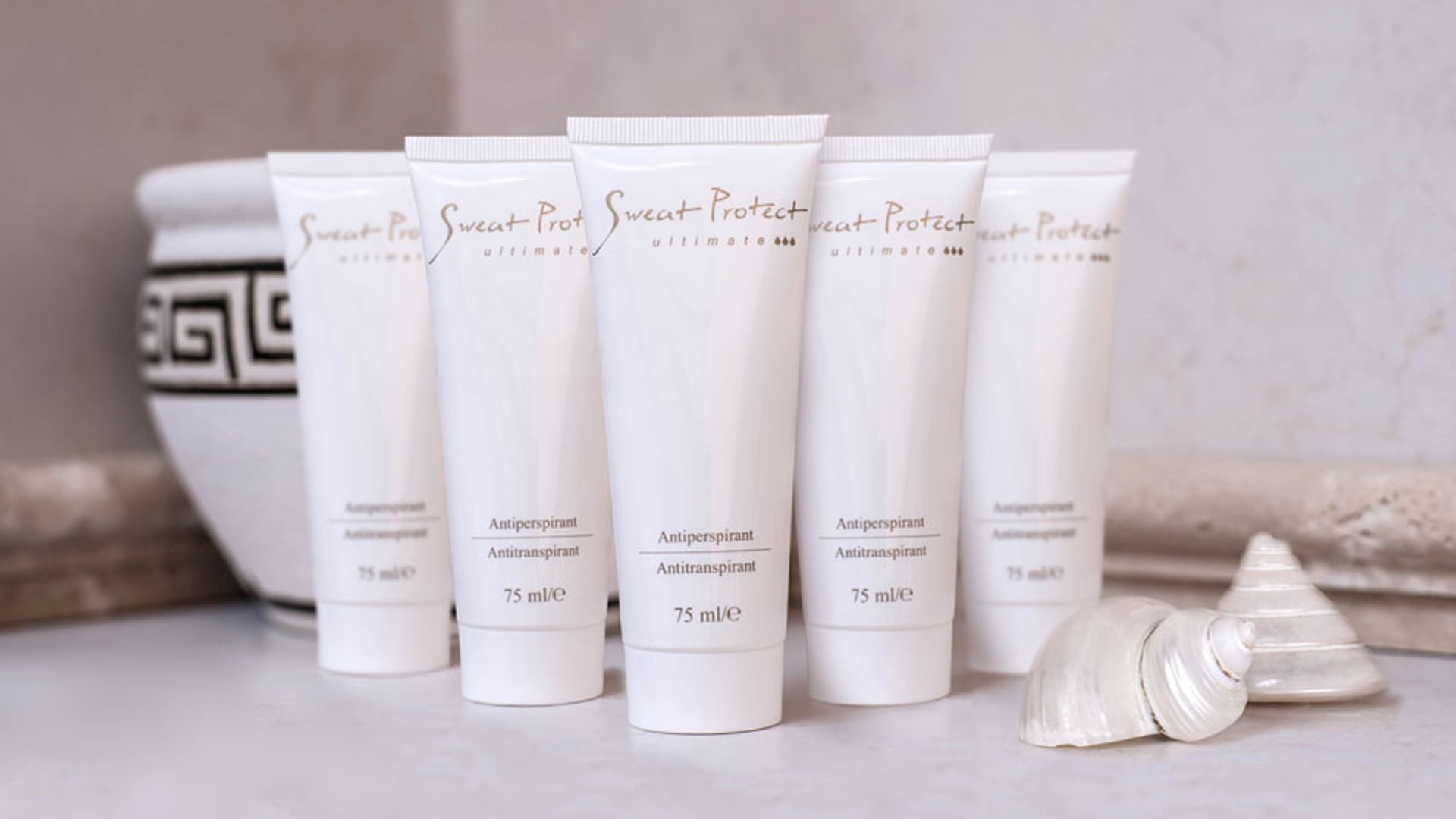Antiperspirants
Antiperspirants - which antiperspirant is best?
Antiperspirants are products applied to the skin to reduce perspiration.
Antiperspirants can be divided into three different categories:
Electric or electronic antiperspirants = Iontophoresis
Antiperspirants with low intensity
Highly concentrated pharmaceutical products
Especially iontophoresis, an electric bath based on low galvanic currents, is gaining popularity. Typically, 15 minutes of therapy per week are enough to keep the sweat under control.
Most people are familiar with antiperspirants, but many are unaware that their friendly pharmacist can produce such a product for them at a lower cost and in larger quantities. Some expensive products offer only a few milliliters for a sweat-inducingly high cost.
Antiperspirants: pros and cons
Some advantages, disadvantages, and effects of antiperspirants:
Advantages of use:
- Cost-effective
- Widely available at low prices
- Reduces sweat production and prevents unpleasant body odor
- Can reduce the feeling of moisture and stickiness on the skin
- Can help avoid skin irritation caused by moisture
Disadvantages: Some individuals may suffer allergic reactions to the ingredients in an antiperspirant.
Some studies suggest that the aluminum compounds often found in antiperspirants may be linked to breast cancer and Alzheimer's disease. However, these findings or insights are controversial - everyone should form their own opinion on this matter.
Effects:
Antiperspirants reduce sweat production by blocking or inhibiting the activity of the sweat glands. Most antiperspirants contain aluminum compounds that are capable of constricting (narrowing) the sweat glands, thus preventing sweat production.
The constricting effect means that the antiperspirant narrows the pores of the skin, thereby reducing sweat production.
Astringent agents, such as aluminum chloride, act on the sweat glands and narrow the ducts. This reduces or even stops the flow of sweat.
Over time, aluminum chloride is washed away or worn off, which is why the effect diminishes after a certain period of time and the application needs to be repeated. This effect can help reduce the feeling of moisture and avoid unpleasant body odor. However, there are also concerns about potential health effects, particularly regarding the use of aluminum compounds in antiperspirants.


Antiperspirants - When they make sense / Application and success
Antiperspirants can be applied to different areas of the body - such as armpits, feet, and hands - to reduce sweat production.
The application of antiperspirants to these body parts can be useful to avoid unpleasant odors, reduce the feeling of moisture and stickiness, and prevent skin irritations.
However, antiperspirants do not always work for everyone. Especially on the feet, an antiperspirant is often ineffective.
For the hands, it is advisable to use a non-sticky antiperspirant. After all, who wants something sticky on their hands? Additionally, a heavily perfumed antiperspirant can be unpleasant for many users and those around them.
The effectiveness of antiperspirants depends on various factors such as individual sweat production, skin type, the type of antiperspirant, and the application method. For some people, the antiperspirant may not work sufficiently or show no effect at all.
It is also important to note that antiperspirants are not the only way to reduce sweat and odors. There are other methods such as iontophoresis, wearing breathable clothing, avoiding spicy foods and caffeine, and washing and drying the affected areas of the body on a regular basis.
Differences between deodorants and antiperspirants
Deodorant is the same as antiperspirant, right?
Deodorants are products applied to the skin to reduce unpleasant odors caused by bacteria multiplying on sweaty skin. Deodorants usually contain antimicrobial ingredients and/or fragrances that help avoid unpleasant odors.
However, a deodorant in the traditional sense does not have a direct effect on sweat production, meaning it cannot directly reduce sweating.
Some deodorants, though, also contain antiperspirant ingredients that can reduce sweat production.
It is important to note, though, that deodorants and antiperspirants are not the same. While deodorants help reduce odors, antiperspirants reduce sweat production.
If you suffer from excessive sweating, it may be beneficial to use an antiperspirant to reduce sweat production. However, it is important to be aware that the use of antiperspirants with aluminum compounds is controversial, as some studies suggest a potential link to health risks such as breast cancer and Alzheimer's disease. In such cases, it may be advisable to find alternative methods to reduce sweat, such as wearing breathable clothing or avoiding spicy foods and caffeine.
Additional tips for deodorant use
Additional tips for antiperspirant use

Iontophoresis - our electronic antiperspirant: No success against sweating? 8-week money-back guarantee!
Support and assistance for iontophoresis users since 1999. If you have any questions or problems, we are happy to assist with our many years of experience!
*You will be charged only for the consumables used during the test period: electrodes for hand/feet (70 EUR) as well as all options and accessories (for the price shown at the time of purchase)!
